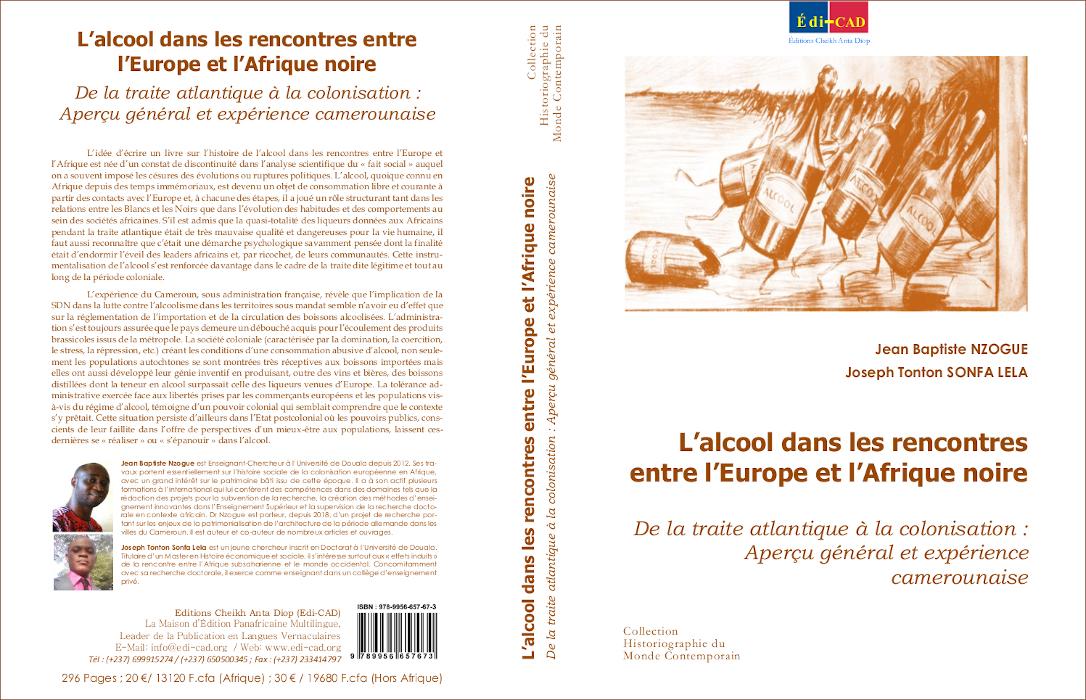
Summary
Authors
Jean Baptiste NZOGUE is Professor-Researcher at the University of Douala since 2012. His work focuses on the social history of European colonization in Africa, with a great interest in built heritage from this time. He has to his credit several international trainings that give him skills in areas such as the writing of projects for the grant of research, the creation of innovative teaching methods in Higher Education and the supervision of the doctoral research in African context. Dr. Nzogue has been carrying, since 2018, a research project on the issues of the heritage of architecture of the German period in the cities of Cameroon. He is author and co-author of numerous articles and books.
Joseph Tonton SONFA LELA is a young researcher enrolled in PhD at the University of Douala. Holder of a Master in Economic and Social History, he is particularly interested in the "induced effects" of the meeting between sub-Saharan Africa and the Western world. Concomitantly with his doctoral research, he practices as a teacher in a private college.
Joseph Tonton SONFA LELA is a young researcher enrolled in PhD at the University of Douala. Holder of a Master in Economic and Social History, he is particularly interested in the "induced effects" of the meeting between sub-Saharan Africa and the Western world. Concomitantly with his doctoral research, he practices as a teacher in a private college.
Details of the book
| Title | : | L’alcool dans les rencontres entre l’Europe et l’Afrique noire
De la traite atlantique à la colonisation : Aperçu général et expérience camerounaise |
| Author | : | Jean Baptiste NZOGUE, Joseph Tonton SONFA LELA |
| Editor | : | Editions Cheikh Anta Diop |
| Collection | : | Collection Historiographie du Monde Contemporain |
| ISBN-13 | : | 987-9956-657-67-3 |
| Language | : | French |
| Number of pages | : | 296 |
| Size | : | 16 X 23 cm |
| Publication date | : | September 02, 2019 |
| Price | : | Africa : 20 € / 13 130 F.cfa - Out of Africa : 30 € / 19 680 F.cfa |
| Order the book | ||



